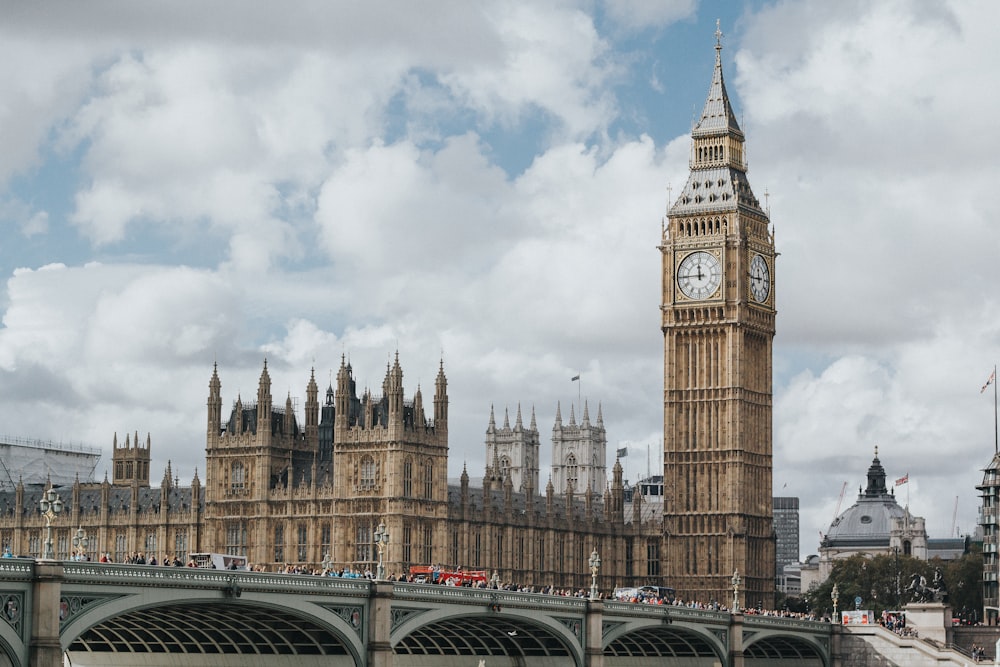In The Age Of COVID-19, The UK Will Remain A Top Investment Destination
2020 has been a trying time for wealth managers. Faced with unpreceded levels of market uncertainty, investors and wealth managers are prioritizing jurisdictions that can offer both easy access to a wide range of investment assets, and relative political stability.
Of course, declining productivity, rising unemployment rates, and revised GDP figures have made this task much easier said than done. At Butterfield, we have been closely monitoring the financial markets with these key factors in mind.
COVID-19’s effect upon the world has been unequivocal. As we analyze the approach of different jurisdictions in overcoming the virus, providing investor confidence, and promoting consumer spending, it is clear that some states have fared better than others.
Photo by Marcin Nowak on Unsplash
Through its relative political and economic stability, transparent judicial framework, and the variety of investment classes available, the UK is a popular destination during times of economic uncertainty. Based on recent investment figures, this seems to remain the case in the age of COVID-19.
Take private equity investment, for example. During the first quarter of 2020, KPMG reported a 53% increase of VC investment into UK scale-ups, equating to an impressive £2.6 billion. The UK real estate market has similarly enjoyed considerable investment flows this year, with Knight Frank recording over £3.2 billion worth of commercial property investment in 2020 so far.
The long-term look
While the above figures are positive, it is important to put these things into perspective. In my mind, there are two crucial factors that must be taken into account when assessing whether the UK can retain its leading role in the wealth management industry.
The first relates to the ongoing fight against COVID-19. The British government has recently encountered a number of setbacks in its effort to contain the virus, with unfavorable intra-national comparisons and numerous policy u-turns leading some to fear a second lockdown.
Although Prime Minister Boris Johnson has recently doubled his efforts to avoid such a scenario, introducing new restrictions on retail, hospitality, and public meetings on 22 September, this fear remains present in the minds of investors. Additionally, policies such as these must be weighed against the UK’s ability to successfully recover financially from COVID-19. So far, the multiple policies implemented by Boris Johnson’s government to coax activity back to the UK’s financial markets have seemingly been successful, with the economy growing by 6.6% in July 2020. The question is whether this momentum can be sustained.
The second issue surrounds Brexit negotiations. Although this has been somewhat eclipsed by COVID-19, the UK is still scheduled to exit the EU’s economic framework at the end of the year.
The future relationship between the UK and the EU remains fundamentally uncertain as we enter the final quarter of 2020. A recently legislated bill introduced by the UK government effectively allows Britain to breach the numerous agreed-upon guarantees set out by the initial UK/EU withdrawal agreement, implemented at the beginning of the year. As a result, a no-deal Brexit has once again become a possibility.
With little progress being made in the previous nine months, UK firms have become understandably worried about their ability to access low-tariff trade after December. Without sufficient trade agreements in place, a no-deal Brexit could damage the UK’s future economic outlook.
A critical turning point
With the UK’s reputation as the top wealth management locale crucial to its future economic growth, it is paramount that substantial progress is made regarding both COVID containment and the ongoing Brexit negotiations.
Given this importance, I am optimistic that both of these issues will be tackled successfully in the coming months, and that the UK’s position as a premier wealth management destination will be secured for the foreseeable future.
Aside from short-term market shocks following periods of volatility, the UK has repeatedly proven its credentials when it comes to offering a stable economic jurisdiction for wealth managers to operate in. Despite the issues discussed above, I am confident that the right action will be taken, and that the UK will remain a top-tier asset management destination for the foreseeable future.





Of course the recovery in the UK will be slow. That is usually how it is recovering from an affliction that could have been fatal. And for quite a few businesses it was fatal,or soon will be..
Then the UK is also in the midst of exiting from the common market agreement, which I do not understand the reasoning for, nor do I understand the anticipated benefit of returning to "the days of yore." But the benefits must be apparent to some folks, it seems.
So there will certainly be some sort of recovery for the businesses that survive, and new opportunities for the ones replacing those that failed.
But will the quality of life be better than before? THAT part is totally unknown. The rich will get richer, as always, but for the rest???????